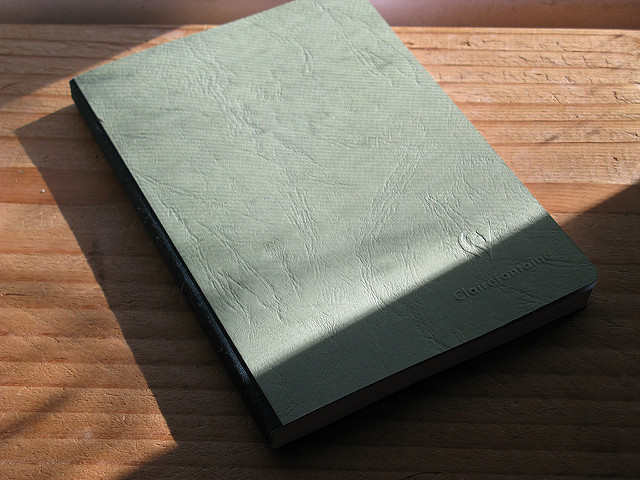
Content Warning: This story contains depictions of anti-gay violence.
Please just let me die,
being alive hurts too much.
—KESHA, PRAYING
Justice was already seated at a table when you arrived at the eatery. You would forever remember his name. Justice. His eyes seemed to smile when they meet yours, they seemed to twinkle. You walked up to the table and sat down, your lips returning the smile you saw in his eyes. This was the beginning of something special, you thought to yourself.
“Hey,” you said.
“Hey,” he replied. His eyes were looking you over, taking you in. He smiled again.
“What will you take,” he asked.
You thought how much you like the sound of his Igbo, the was it tumbled out like an ancient dance. You thought too, that you could definitely fall in love with him. You could imagine it, his hands holding you, pressing your head to his chest so that you could hear his heart’s beating.
The food came: rice, fish, plantain, stew so red it looked like a warning.
He ate slowly, watching you, and you wondered if he was thinking, too, of the weeks that led up to this meeting, to the moments where you crafted this lunch from air.
“I would really like us to meet,” he had said.
“Me too, but I don’t want it to be for sex,” was your reply.
“We could just have lunch. I could sing you a song. I feel like I know you already. I feel like I’ve known you all my life.”
This was after weeks of long online conversations that morphed into midnight calls. You had stared at his pictures and wondered, What if? What if you had finally found someone? What if love was not impossible after all?
You looked at him, studied his features, for your journal.
“So you play the guitar well?” you asked.
“Yes, yes. I told you, I’m a musician. I do other things on the side though, till it picks up.”
“I would really love to hear you play,” you said, “And sing.”
“Don’t worry, eventually when you come, I’ll play you something.”
“And sing, too.”
“Huh?”
“And sing,” you said again. “Won’t you sing me a song?”
“Yes, of course. Of course!”
You would have many hindsight epiphanies about him, and this would be the first one. You would realize, only much later, too late, that he did not believe those words. You had told him how much you wanted to hear him play his guitar, you loved guitar. And he promised to play you something. It was a promise.
“Everly, Everly,” he had said, “I will write you your own song. You inspire me. I never knew conversations could be this meaningful on Grindr.”
It was a promise. You wrote it down in your journal. You described how now you felt he owed you a song, a song you would cherish no matter how bad it was.
You wrote many things in that journal, things you could tell no one else in the world. Before you began to write in it, it felt as though you would fall asleep one night and loneliness would crush you in your sleep.
In the first page you wrote: I have no one. I have no one to share my burden. I feel like the moon just before dawn, when it’s too late for stars but too early for clouds. Surrounded by nothingness.
And then Justice happened. Dark, tall, polite. The kind of man that asked you where you worked before he asked you your role. The lunch lasted two hours. It ended a few minutes past six. Two hours spent eating, talking, eating and talking. Of the movies you liked. The books you’ve read. The authors you loved. If there were any doubts that this could be something other than a flicker, a mere brush of souls, the doubts were gone by the time you stood to leave. And so eager were you to shoo the doubts away. So eager were you to experience something other than a man’s need to get off. So eager were you to be seen.
Dusk had descended on Owerri, and the shops on Nekede road were beginning to close. Outside the eatery he asked, “Can you just like escort me down there to a friend’s place? I want to collect something.”
This would be the second one, how uneasily he smiled when he made this request.
“It’s late na. I told you I only wanted lunch.”
You knew how these things went. You would escort him to his friend’s house, then the friend would get the gist and decide he had an errand to run, then he would beg you till he wore you down. And you did not want to think he was like that, like the men who had zoomed through your life, searching for that moment when they could close their eyes and forget the world. Just that moment, nothing more.
“Come on, I’ve told you I’m not like that. We won’t be long. I’ll just collect something and I’ll walk you to the bus stop. That way we can talk some more.”
So you agreed. It was getting late and your mother would soon start wondering where you went and why you weren’t home yet. But this could lead somewhere. You would never forget how giddy you felt walking down that road with him, talking of Buhari and Rochas and how hard things were. Walking down that road, your heart had been fiery with hope so blazing that a small smile idled on your lips. He slipped his fingers into yours, an interlocking hold. You did not notice how emptier the roads became the farther you walked. And if you did, it did not cause you alarm. You walked and walked till the lights descended on you like a curse. Lights so blaring and all the more blinding because you had been walking in the dark. There were tyre screeches and then the car slowed down. You immediately let go of his hand. It was an unconscious thing. You would write in your Journal how the dread that spread through you weakened your hold till his hand slipped away. Two men jumped out of the car. They bore down on you, and you stepped back, but their legs floated across the tarmac like water and they brandished knives. The world was moving so fast. You turned to look at Justice, to tell him to run, but he had left your side. He was now sitting in the driver’s side of the car. It did not occur to you even then, what had happened.
The men forced you into the car, blindfolded you and the car began to move. Still it took you so long to understand that you had been betrayed, set up. And that the genesis of your kito had been back in the eatery when he looked at you and smiled.
You begged.
“Biko,” You said. “Please. Please, I’m my mother’s only child.”
You heard them laughing, then you felt bones slamming into your face. You could taste blood seeping unto your tongue. They stopped at You don’t know where and dragged you into a house before taking the blindfold off.
First they searched you. Taking your phone, your wristwatch, the two thousand, seven fifty in your wallet, your wallet itself, everything. You just stood there, afraid, thinking of your mother, thinking of the darkness of your room where you had dreamed this many times. They took pictures of you, laughing, asking you if you wanted to see their dick. Then they sobered up, you could see the brimming violence in the space between their brows. You could see your death there. The first one was tall, as tall as Justice but the colour of light honey. The other one had a face filled with pimples.
“Oya call the persons you do this thing with, start calling them,” they said handing you your phone.
“I don’t know anybody.”
“We look like we dey joke abi?” the fair one said.
“I swear,” you said.
He kicked you down. His leg connected with yours and wiped you off the floor like a blemish. They proceeded to kick you, punch you, curse you, amidst your tearful pleas.
“Homo. We go beat the devil out commot,” they spat. The venom in their words left their lips with the saliva, and it sank into your flesh. Justice was at the other end of the room looking on with a cold expression.
Later you would write in your journal: He did not touch me. He was sitting there all sore looking like he would burst into song; a dirge about the boy that died surrounded by the broken pieces of his hope. A boy he helped kill.
They beat you and beat you till you lost the strength to beg or cry, and your eyes swelled shut.
“Make him remove cloth,” perhaps it came from the pimpled one, you could not be sure.
They beat you as they peeled your clothes from your skin. Then they went to the table and stood there, talking as they went through your things. You lay naked on the floor.
“You people, disgusting, this is how it would be for all of you. Remember that other fool that came from Port Harcourt?”
“Yes I remember,” the other said. “Came all the way from PH just to do Homo, to fuck his fellow man.”
They laughed again and I imagined a boy on a bus to Owerri thinking that the travel was worth it, if only for the chance of finding someone that would see him. There was something about their laughter, something brash and shaming.
“What’s your ATM pin?” one barked from the table. You said nothing. He rushed to your side and kicked you in the ribs. Kicked you till you coughed up your pin with blood. Then he left with it. And soon he was back.
“This one does not even have money,” he said. “Only forty-eight thousand. That other guy that came from PH, that guy rich. One hundred and eighty thousand, you remember?”
You just sat there, naked, feeling so ashamed, so useless, so unnecessary. They came back and stood over you, turned you over with their feet.
“You no go call all the people wey dey follow you do this thing abi,” a kick.
“We go post these pictures o. Make everyone know, even your family sef. Make they know the kind disgrace wey you be.”
He spat on you. You did not so much as flinch as the spittle landed on your face.
You were imagining your mother hearing the news and breaking into tears of shame. You wished they would kill you. Kick and kick at your chest till bits of your heart spluttered through your mouth. You wished so much for it to end, and decided that if it didn’t, if they did not kill you and throw your body into a bush to be found by dogs, you would do it yourself.
“You hear wetin I talk? We go expose you. These pictures go enter Facebook.”
They cleaned the soles of their feet on you using the skin of your belly as a foot rug while you cried silently to yourself.
They said again how they hated gayism, how they were sure gay people hated themselves.
“Guy I sure say, you people hate unasefs.”
And in that moment, and for days after that, you hated yourself with a passion. It took days and your mother’s love for the hate to morph, slowly, into murderous rage at them, at Justice.
There was no one but your journal to tell this. No one to tell that you could have stabbed Justice to death if you were opportuned to do so.
You had no one, and perhaps, that in itself was the severest slight of all.
Later you would write in your journal: I suffered immensely, not from the pain of the beating but from the pain that I could not tell anyone what really happened to me…Hunted, like an endangered species…memories of April 30th still hurts me, and it hurts even more to know that I would take it to my grave.
Justice came to where you were sprawled on the floor and dropped your clothes next to you. You knew it was him because of his voice.
“Where do you stay,” He asked.
“World Bank Housing Estate,” you managed to say. The pain shot through your tongue and your gums, all the way down your throat.
“Put your clothes on,” He said.
“Guy you dey pity am? These people no be human being o. Tufiakwa. You dey pity am?”
It sounded like that guy with pimples. Justice was silent, as though prodding around in his head to see if there was any pity there. In the silence, you imagined him replying with song. Finally singing you the song he owed you.
“Which kind pity? Make we just drop am for Nekede road give am N100. World Bank Housing Estate no far.”
You wondered how on earth you would make it home. Death felt so close, and the night was so far gone there would be no vehicles out. Perhaps you would slump somewhere by a gutter and be found cold the next morning by the shop keepers, or you would make it home before collapsing so that your mother would find you when she came out to look into the dark wondering aloud what has kept you out so long.
None of those things would happen. The strength would come from nowhere and you would walk and walk till you knocked on your mother’s door and told her you were robbed and kidnapped.
“Robbed or kidnapped, which one,” she asked, hey eyes already beginning to water.
“I was kidnapped, then robbed.”
Then you would lie in the Federal Medical Centre for days, tied up in bandages, shivering at the memory of yourself walking barefoot on the road, caked in blood and saliva, their words cutting deeper into you than your wounds. The roads were empty: it was just you, alone in the night, walking under the cloak of shame that pressed so violently into you as though to suffocate you.
They blindfolded you before driving to Nekede road, gave you hundred naira, shoved you out of the car before speeding off. You sat on the road and watched the car ebb into the night. Then you stood. A chilly wind was blowing. You hugged your arms and began, slowly, to make your way home, crafting as you went the lie you would tell your mother, a lie you would repeat to the doctors and policemen. Above, the moon hung solemnly in the sky, and the stars twinkled as though in testament to this story that no other soul would hear.
About the Writer:
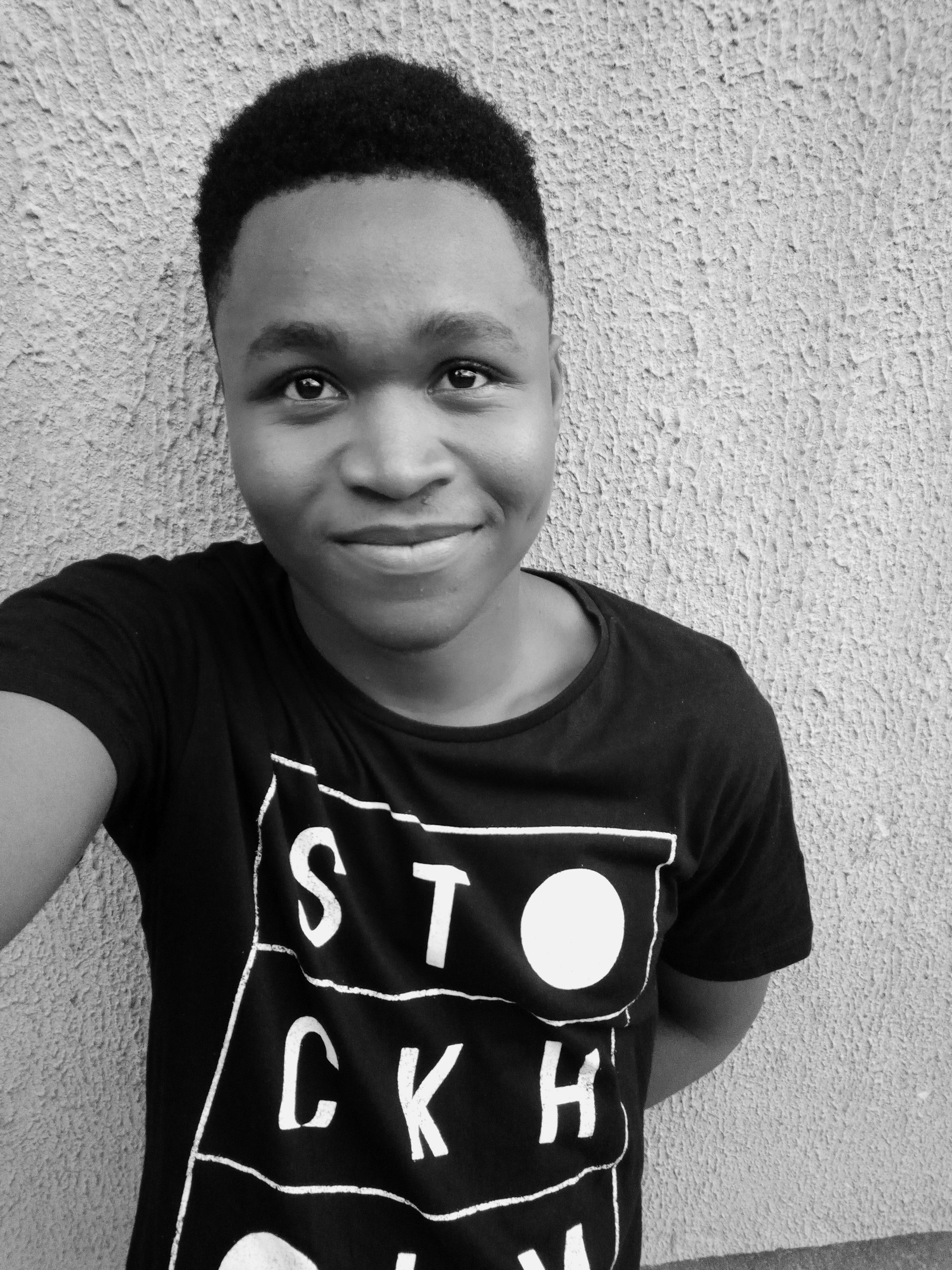 Ani Kayode Somtochukwu is a short story writer and poet. His work has appeared in Tuck Magazine, Enkare Review, Bakwa, Gertrude, and After the Pause. His flash fiction, “Dope Delivery” was a finalist for the Dublin Brilliant Flash Fiction Contest, and his poems were shortlisted for the 2017 Erbacce Poetry Prize. He is currently studying Applied Biology at the Enugu State University of Science and Technology. You can follow him on Twitter @kayode_ani
Ani Kayode Somtochukwu is a short story writer and poet. His work has appeared in Tuck Magazine, Enkare Review, Bakwa, Gertrude, and After the Pause. His flash fiction, “Dope Delivery” was a finalist for the Dublin Brilliant Flash Fiction Contest, and his poems were shortlisted for the 2017 Erbacce Poetry Prize. He is currently studying Applied Biology at the Enugu State University of Science and Technology. You can follow him on Twitter @kayode_ani



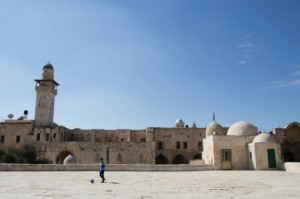
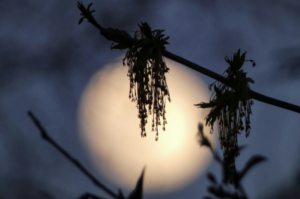

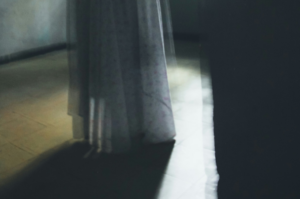


Oliver March 29, 2019 15:25
This is stunning: The prose is superb and your descriptions are so vivid. It sings so so beautifully.